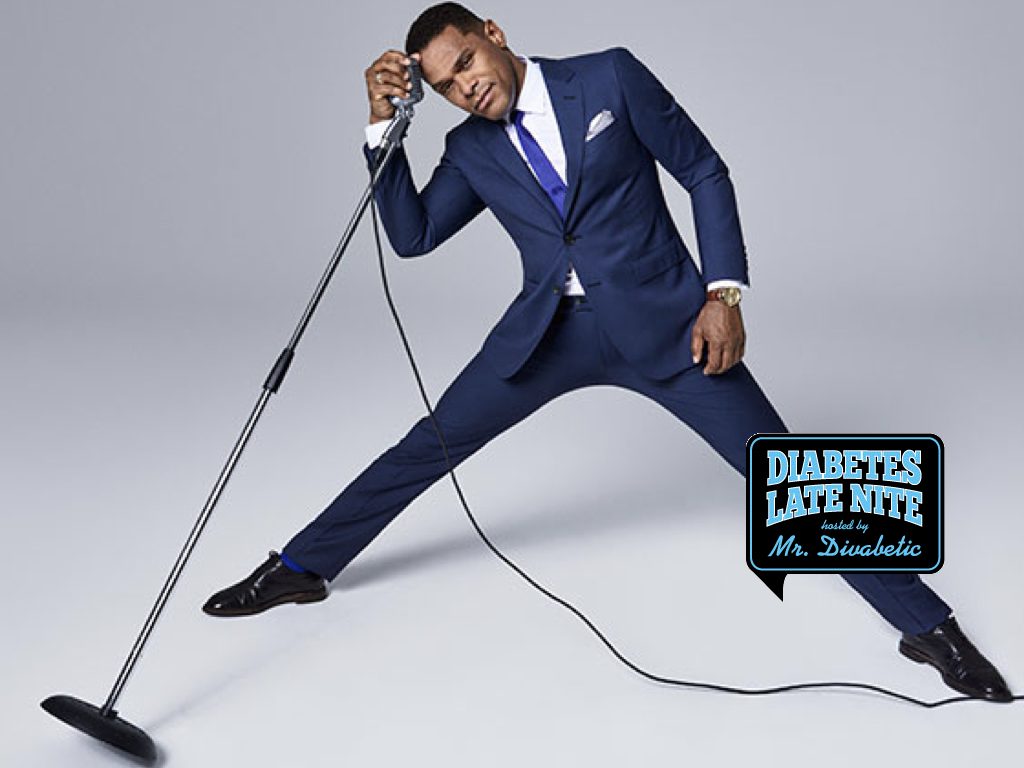Our ‘Spaghetti Westerns’ theme for our Divabetic Father’s Day Celebration hopes to shed light on one of the more common, but often not discussed, diabetes health-related complications for men: Erectile dysfunction (ED).
Erectile dysfunction (ED) — the inability to get or maintain an erection firm enough for sex — is common in men who have diabetes. It can stem from problems caused by poor long-term blood sugar control, which damages nerves and blood vessels.
Does the man in your life keep quiet about having trouble getting an erection, keeping an erection and/or shooting blanks?
 If so, then maybe the title of one of the most popular Spaghetti Western films: ‘The Great Silence’ accurately sums up what’s happening in your bedroom.
If so, then maybe the title of one of the most popular Spaghetti Western films: ‘The Great Silence’ accurately sums up what’s happening in your bedroom.
In the film, a mute gunfighter defends a young widow and a group of outlaws against a gang of bounty killers in the winter of 1898, and a grim, tense struggle unfolds.
More to the point, 95% percent of men are ‘mute’ about discussing erectile dysfunction. A national telephone survey of 502 American men age 18 or older, which was undertaken as part of the Cleveland Clinic’s “MENtion” it campaign (2016) found only 5% of men discuss erectile dysfunction (ED) with their male friends, and only 3% mention urinary tract issues.
One-fifth of men (22 percent) do not discuss private topics such as health or relationships with anyone. Baby Boomers are especially private in this regard, with only one-third having more than one person they feel comfortable sharing such information with, compared to 47 percent of Millennials.
Why is ‘The Great Silence’ About ‘ED” Still Going On Today?
In therapy, many issues are covered, but sex may still be an uncomfortable topic for many people and even therapists to talk about. Yet many people with diabetes have sexual issues that need to be resolved in order for life to be the most fulfilling that it can be.
“Once ED occurs, the man can start to become very anxious about it happening again”, says, Dr. Laura Berman, a sex educator and relationship therapist. “Ironically, this can make ED more likely to occur, and it can also complicate his relationship with his partner…. Meanwhile, his partner might have no idea what’s going on and be very concerned and even angry.”
I reached out to one of my favorite certified diabetes educators, Author Janis Roszler, LMFT, RD, LD/N, CDE, FAND , who also just happens to be a family therapist (!), to share some tips to help men open up about E.D:
You are not alone. ED is a very common problem that affects more than 39 million men in the United States. You are not the first man to bring up the topic with your doctor, and won’t be the last!
There is a treatment for almost every man who has E.D. If you tried oral medications and they didn’t help, don’t give up. You have a lot of options.
You deserve a good sex life. Don’t assume that having E.D. is the way things must be from now on. For most men, intimacy is very important for their mental and physical health. Don’t give up!
If you feel uncomfortable about the topic, tell your healthcare provider that you have something very personal to discuss. Hopefully, your doctor, nurse or other expert will get the hint and open the discussion for you.
What you Can Do If Your Suffering from ED!
Keep your blood glucose level under control to prevent urological and other diabetes-related problems. Medications, exercise, and a proper diet can help you manage your blood sugar levels.
Conditions like diabetes or heart disease can lead to emotional problems, including anxiety or depression. These can worsen your ED and other aspects of your health. Talk to your doctor if you start to experience feelings of hopelessness, sadness, anxiety, or worry.
What Causes It?
Hormonal imbalance may be to blame. You need adequate levels of testosterone, follicle-stimulating hormone (FSH), luteinizing hormone (LH), and prolactin to produce healthy sperm, so low levels could cause a problem.
Certain health conditions can play a role, too. Diabetes, for instance, damages the nerves that move the sperm out of the penis, Dr. Paduch says. READ MORE
 Did you know that he Spaghetti Western boom in the late 60’s and early 70’s saw close to 500 features produced throughout Europe? Such actors as Clint Eastwood, Franco Nero, Lee Van Cleef, and Terence Hill (real name: Mario Girotti) found a home in the genre.
Did you know that he Spaghetti Western boom in the late 60’s and early 70’s saw close to 500 features produced throughout Europe? Such actors as Clint Eastwood, Franco Nero, Lee Van Cleef, and Terence Hill (real name: Mario Girotti) found a home in the genre.
‘The Great Silence’ Trivia: According to director Sergio Corbucci it was actor Marcello Mastrioanni who gave him the idea of the mute gunslinger, when the actor told him that he had always wanted to do a western, but unfortunately didn’t speak English. When Corbucci first met Trintignant, who didn’t speak English either, he decided that this was the moment to turn the taciturn spaghetti western hero into a mute. The name Silence is not only referring to the character’s incapacity to speak, but also to that “great silence” that is waiting for us all on the other side.
Janis Roszler’s ‘Sex & Diabetes’ is the first book ever to deal exclusively with sexual problems as they relate to diabetes— and the only book to discuss issues that relate to both men and women.
It also shows you how sexual problems can be prevented or delayed and discusses treatments options that currently exist. Sex & Diabetes highlights the value of communication between sexual partners and the importance of having an open relationship with healthcare professionals.
“The best book on sexuality and diabetes published in the last 5 years. A must read for all persons with diabetes and their significant others.” —David S. Schade, MD.
The happy healthcare host, Mr. Divabetic explores issues of love, intimacy and diabetes on this special one hour podcast, ‘Don’t Let Diabetes Kill Romance’. Both type 1 and type 2 diabetes can lead to sexual health complications including vaginal dryness, sensation and performance. Up to 50% of men and 25% of women may experience some kind of sexual problem or a loss of sex drive.
Don’t equate sexual performance with love or a fulfilling relationship; focus on letting your partner know you care and want to give pleasure as part of your relationship.
LISTEN NOW: Don’t Let Diabetes Kill Romance podcast with guests Janis Roszler MS, RD, LD/N, CDE, FAND (2008-2009 Diabetes Educator of the Year (AADE), Best-Selling Author Lisa Eugene, Jennifer Martsolf from Trigg Laboratories (the makers of Wet Lubricants).
Over the next week I’ll be sharing more Divabetic ‘Spaghetti Western’-themed Father’s Day Celebration blog posts showcasing Best-Selling Cookbook Author Holly Clegg‘s healthy recipes, Megrette Fletcher RD, CDE‘s advice on portions, Diabetes Advocate & ‘Rich In Love’ Spokesmodel Doris Hobbs’s vintage Western looks and fun party ideas (pictured above).
Divabetic ‘Entertaining’ Style: Burlap’s not just for potatoes anymore! Burlap tablecloths and table runners are the perfect combination of classic beauty and country charm! Burlap tablecloths come ina vast array of colors. My favorite shades of faux burlap are natural or white. These two shares are often paired together to create a clean contrast between the natural rustic shade and fresh linen-like look of white.Try one to add texture to your Father’s Day Celebration.
Divabetic ‘Entertaining’ Tip: When determining your color palette remember that you define it, your surroundings do not need to dictate your table. If you make your table the focal point, that is really what guests are going to see. So don’t stress too much about your carpet, wall color or other nearby factors. Be bold, be sassy, be a diva!
TUNE IN: Tuesday, June 13, 2017 for Diabetes Late Nite with music by Maxwell. We’re talking about Diabetic Macular Edema (DME) with musical inspiration from Maxwell.
Diabetic Macular Edema (DME) is an accumulation of fluid in the macula-part of the retina that controls our most detailed vision abilities-due to leaking blood vessels. In order to develop DME, you must first have diabetic retinopathy. Diabetic retinopathy is caused by damage to the blood vessels in the tissue at the back of the eye (retina). Poorly controlled blood sugar is a risk factor. Early symptoms include floaters, blurriness, dark areas of vision, and difficulty perceiving colors. Blindness can occur.
Guests include singer Alfa Anderson, Diabetic Macular Edema patient Maryanne Kass, Artist Bryce Chisholm, the Charlie’s Angels of Outreach, Poet Lorraine Brooks and Mama Rose Marie. Throughout the podcast we will be featuring selected songs from several of several of Maxwell’s albums courtesy of SONY Music.











 Let’s start with what to wear at our fabulous “Divabetic New Year’s Eve for 2”. When it comes to dressing for the occasion there’s no better sytle icon to turn to than our vey own Divabetic Image & Style Advisor,
Let’s start with what to wear at our fabulous “Divabetic New Year’s Eve for 2”. When it comes to dressing for the occasion there’s no better sytle icon to turn to than our vey own Divabetic Image & Style Advisor, 
 The
The 




 Since no “Divabetic New Year’s Eve for 2” celebration is complete without a little bubbly we asked Samantha Shanken Baker, who helps presents memorable food and wine events like the Annual Harlem Eat Up! to suggest a great tasting champagne for under $50. Samantha’s pick is
Since no “Divabetic New Year’s Eve for 2” celebration is complete without a little bubbly we asked Samantha Shanken Baker, who helps presents memorable food and wine events like the Annual Harlem Eat Up! to suggest a great tasting champagne for under $50. Samantha’s pick is 
